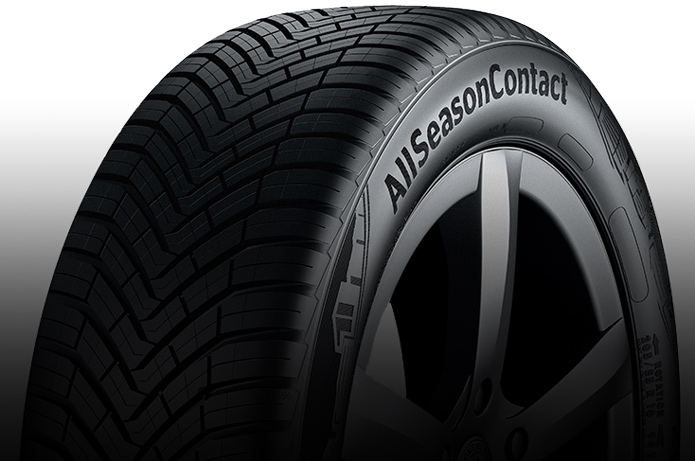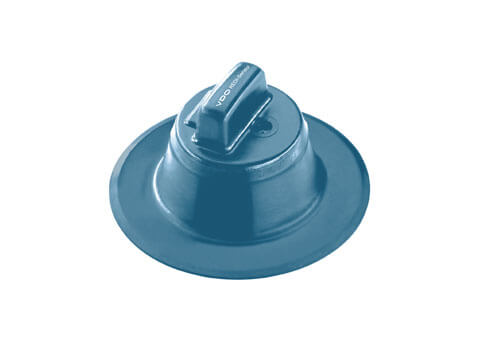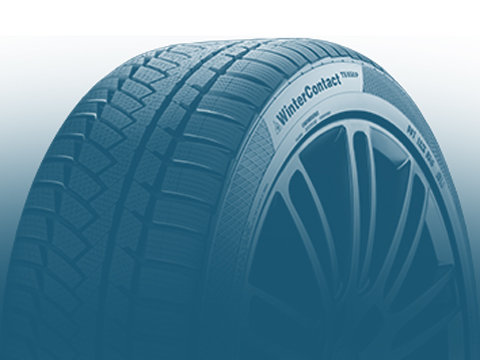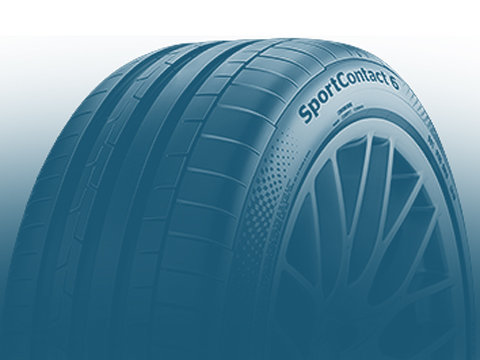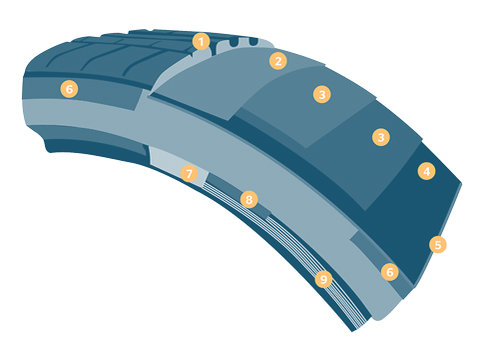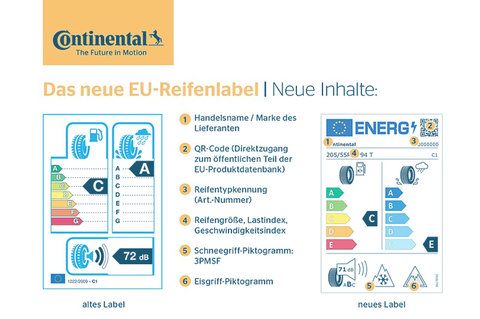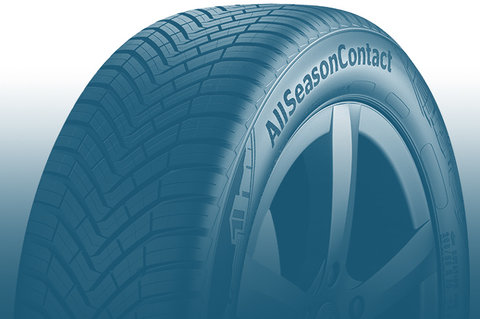All-season tyres
All-season tyres are car tyres that can be used all year round. They are also known as all-weather tyres.
Function
All-season tyres are legally considered as winter tyres, provided they carry what is known as the Alpine symbol (mountain pictogram with snowflake), which identifies tyres as winter tyres. Drivers are allowed to use these tyres in winter weather conditions, which is not the case with summer tyres. The major advantage of all-season tyres is that there is no need to change tyres in autumn/winter and spring/summer.
That said, because all-season tyres are merely a compromise, they are not able to offer the same benefits as summer tyres in summer and winter tyres in winter. Because rubber hardens in cold weather, all-season tyres have a softer tread than summer tyres, which lose their elasticity at low temperatures. Moreover, their treads have special ribs that provide grip in snowy conditions. In summer, all-season tyres suffer from higher abrasion and cause slightly higher fuel consumption due to their softer rubber compound.
All season tyres should be viewed as a solid mixture of summer and winter tyres, but because of their versatile properties they are not suitable for extreme weather conditions.
All-season tyres are particularly popular in regions with mild winters. They are less common in mountainous regions such as the Alps.
Safety
Tyres are safety critical components. As a result, tyres should be checked and maintained regularly to guarantee safety. Because all-season tyres often remove the need for a seasonal changeover appointment at the garage, motorists should ensure that their tyres are checked regularly by a specialist garage for damage, wear, correct air pressure and sufficient tread depth.
Value retention
Careful use and regular upkeep and checks help to maintain the value of the tyres. Drivers should regularly check the air pressure, avoid bumping into kerbs and always have new tyres balanced by a specialist dealer.
Environmental protection
According to the ADAC, optimised tyres can save up to 0.5 litres of fuel for every 100 kilometres. This means that a tyre with low rolling resistance that seems expensive at first glance can more than pay for itself over its useful life.
Generally speaking, the well-known manufacturers place considerable value on protecting the environment. They go to considerable lengths to make their tyres more energy efficient and environmentally friendly.

